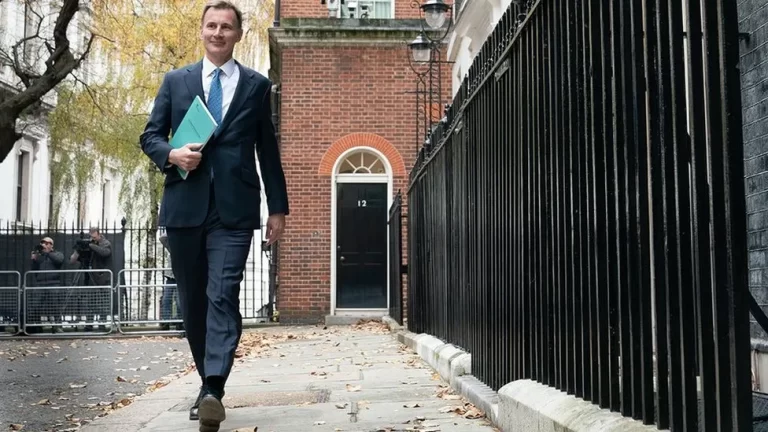Promises of tax cuts during general election campaigns may have to be rolled back as the UK economy faces some of its worst problems since the 1950s, a leading think tank has said.
“Tax cuts today add to the risk of tax rises or spending cuts tomorrow,” the Institute for Fiscal Studies said. Politicians need to be honest about tough economic trade-offs, it added.
But the Treasury said the economy was turning a corner, and that growth would mean more funding for public services. IFS director Paul Johnson said that if political parties looking to form the next government “are promising tax cuts, let's hear where the spending cuts will fall”.
“It might be easy to announce immediate tax cuts, without any hint of what it is the state currently does that it will stop doing, or what taxes will rise in future, but this trade-off cannot be wished away,” the IFS's report said.
The government gets most of its income from taxes, but if it cannot cover its spending, it has to either borrow more, raise taxes, or cut public spending. Last month, government borrowing was lower than expected, and interest payments on debt dropped sharply due to a fall in the rate of inflation.
Analysts said this gave the Chancellor, Jeremy Hunt, more “wiggle room” to cut taxes.
However, the IFS said that for the next government it would be more difficult to reduce the amount of debt the UK has compared with its economic output “than in any other parliament since the 1950s” – just after World War Two.
National debt is at levels last seen in the 1960s after the government spent billions supporting the economy during the Covid pandemic, and subsidised energy bills after a spike in energy prices caused in part by Russia's invasion of Ukraine.
Interest payments on that debt, combined with sluggish growth, will make reducing the debt-to-GDP ratio more difficult.
There will be “limited scope to cut taxes or increase spending by a meaningful amount”, because the two main UK-wide parties – the Conservatives and Labour – have pledged to get national debt as a share of national income falling, the IFS added.
Last week, Mr Hunt hinted that he was aiming to cut taxes in the spring Budget. Speaking at the annual World Economic Forum in Davos, Switzerland, he said that countries with lower taxes have more “dynamic, faster growing economies”.
In the Autumn Statement in November last year, Mr Hunt announced a £10bn National Insurance cut for millions and an uplift in benefits, claiming the Conservatives have delivered the biggest tax cuts in decades in a move to boost the UK's stagnant economy and top up incomes.
However, the UK's overall tax burden remains at a record high, largely due to frozen tax thresholds. The IFS said with weak economic growth and a cost-of-living crisis, prospects for any winning government were “miserable”.
To meet commitments on spending on the NHS, defence, childcare and international aid, the UK would need to find £20bn to avoid cuts to other services, the IFS said.
Ben Zaranko, a senior research economist at the IFS, told the BBC that long-term challenges to the economy such as an ageing population and tough climate commitments “would start to bite” this decade.
But the Treasury said its action to “halve inflation and ensure debt falls as a share of the economy means we are now beginning to turn a corner, which is why we can afford tax cuts for 27 million working people this month”.
A spokesperson said: “The best way to deliver sustainable funding for public services in the future is to grow the economy – the UK has grown faster than France, Germany and Japan since 2010 and the OBR (Office for Budget Responsibility) say our action in spring and autumn will deliver the largest boost on record.”
Labour's spending plans include spending £28bn a year on green energy projects, reaching that figure after 2027.
However, a Conservative Party spokesman said this “unfunded spending promise will end up meaning thousands of pounds of higher taxes for working people. That's because Keir Starmer can't say how he would pay for it as he does not have a plan.”
— CutC by bbc.com


